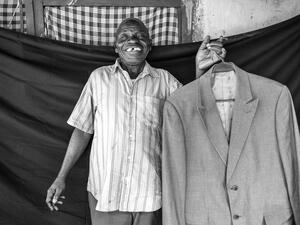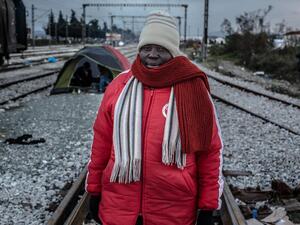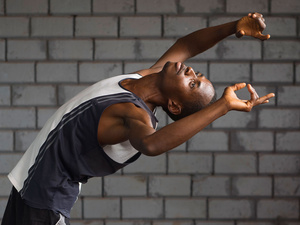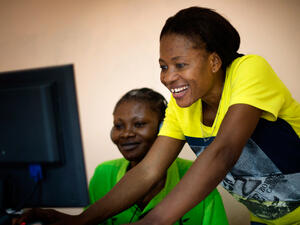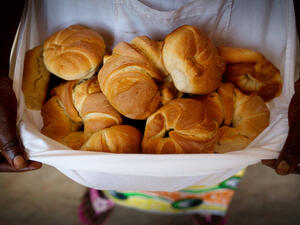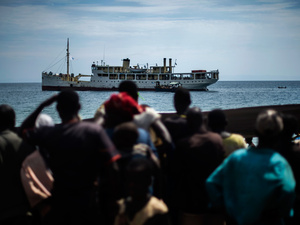Violence displaces 15,000 Congolese civilians over past two months
Violence displaces 15,000 Congolese civilians over past two months
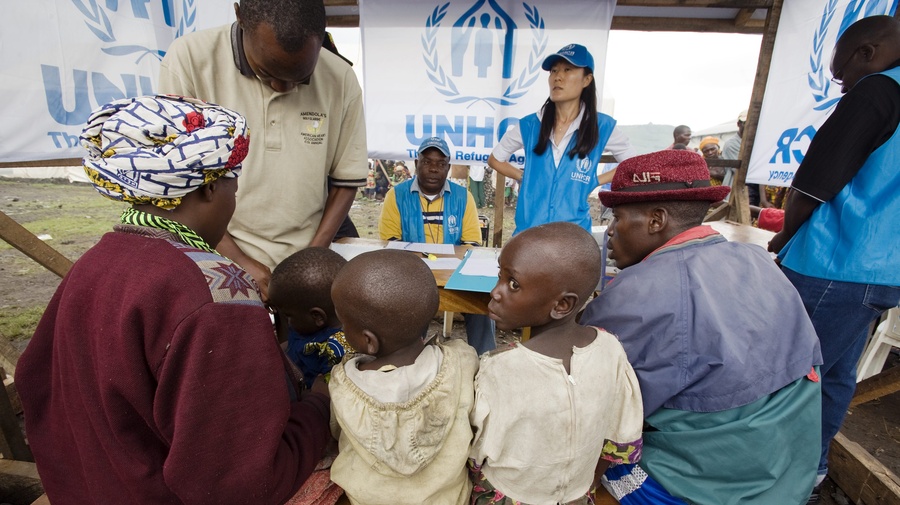
An internally displaced Congolese family wait to be registered in a previous wave of displacement caused by conflict in North Kivu.
GOMA, Democratic Republic of the Congo, January 26 (UNHCR) - Military operations and banditry have forced more than 15,000 people to flee their homes over the past two months in Democratic Republic of the Congo's troubled North Kivu province.
Since December, the UN refugee agency has registered 15,508 newly displaced people at dozens of UNHCR-run sites for internally displaced people (IDP), where they seek shelter and safety.
According to the fleeing families, the situation is difficult and unsafe in their villages in the western part of North Kivu. They say military operations and violence conducted by numerous armed groups are forcing civilians to seek safety elsewhere.
UNHCR registered the new caseload of internally displaced people in and around Kitchanga, in a large area to the north-west of Goma, the capital of the province. This latest wave of displacement brings the total number of IDPs in the UNHCR-run sites to 116,000. UNHCR is currently managing 47 IDP camps in the region, providing protection and assistance.
"We estimate that so far we have registered only a part of the recently displaced population and that many more could be sheltering with host families or hiding in the woods fearing to return to their homes. These IDPs cannot be accessed due to insecurity and impassable roads," a UNHCR spokesperson said on Tuesday.
There are an estimated 2.1 million internally displaced people in total in eastern Democratic Republic of the Congo, where harassment, human rights abuses, rape and intimidation of civilians is regularly reported by the local population.
The Congolese government launched several offensives during 2009 aimed at neutralizing the Democratic Forces for the Liberation of Rwanda - a Rwandan Hutu militia group. However, other militias and armed groups have taken advantage of the situation to attack civilians, loot property, commit rape and burn down homes.
By David Nthengwe in Goma, Democratic Republic of the Congo



